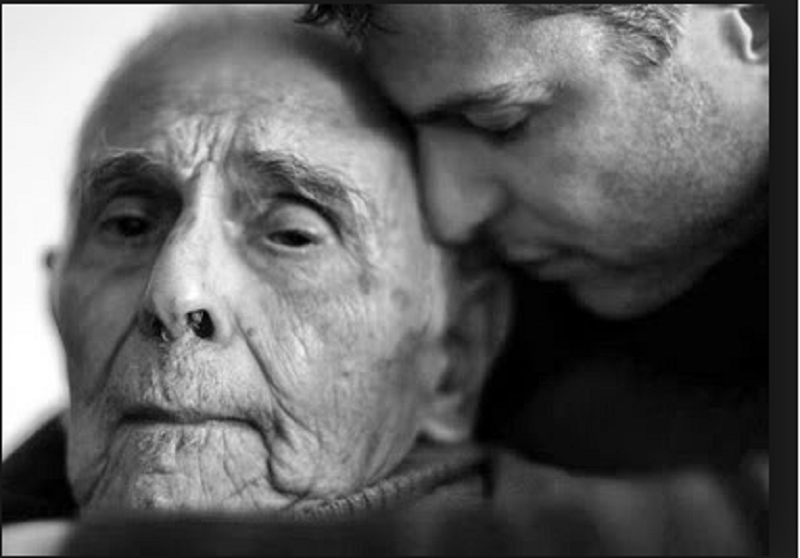September 10 it is so often ignored in major media.
But perhaps we should change that name to “World Prevent Just Some Suicides Day.” A mere five days prior to the big event, two columns were published in major newspapers that, at the very least, present elder suicide in a sympathetic light or, one could even say, praise it with faint damnation.
The first is from the New York Times by “The New Old Age” columnist Paula Span. In “A Debate Over ‘Rational Suicide,’” Span seems sympathetic to the argument that we should empower some elderly people to kill themselves. Oh sure, she expresses concerns — an elderly suicidal person could be mentally ill, the slippery slope, etc. — but her prime focus is supportive, unsurprising as she has also been favorably disposed toward suicide-by-self-starvation for seniors. From her essay:
The size of the baby boomer cohort, with the drive for autonomy that has characterized its members, means that doctors expect more of their older patients to contemplate controlling the time and manner of their deaths.
Not all of them are depressed or otherwise impaired in judgment. “Perhaps you feel your life is on a downhill course,” said Dena Davis, a bioethicist at Lehigh University who has written about what she calls “pre-emptive suicide.”
“You’ve completed the things you wanted to do. You see life’s satisfactions getting smaller and the burdens getting larger — that’s true for a lot of us as our bodies start breaking down.”
At that point, “it might be rational to end your life,” Dr. Davis continued . . . “We ought to start having conversations that challenge the taboo” of suicide, she said.
However heated the arguments become, as religious groups and disability activists and right-to-die proponents weigh in, there’s agreement on that point, at least. Reflexively negative reactions to an older person’s mere mention of suicide — Don’t say that! — shut down dialogue.
This is more than a mere “taboo.” Social disapproval of suicide is important and rational. It saves lives.
True, a “Don’t say that!” response isn’t helpful. But unequivocal loving and empathetic suicide-prevention efforts are. In all cases! That’s not the same as “dialogue.” It is treatment.
Follow LifeNews.com on Instagram for pro-life pictures and the latest pro-life news.
Meanwhile, in the Orange County Register, columnist David Whiting depicts elder suicide as a matter of “taking control” and “reasoned suicide.” His mother overdosed on animal sedatives obtained from Mexico — a suicide method pushed by the odious Australian suicide fanatic, Phillip Nitschke. Only she apparently found out where and how to obtain the poison in the New York Times.
Along with an unknown number of other seniors, Alice Whiting made her way to Tijuana and bought a bottle of veterinary pentobarbital, the gold standard of poisons, the same brew that has been used in putting convicts to death.
With a little sleuthing, I discovered that she found her “where and how” in a 2008 New York Times article that is more “how to” than necessary.
Rather than being upset with the Times for giving his mother a map to obtain lethal pills, Whiting seems supportive of his mother’s suicide:
Me? I wish I could have dinner with Mom tonight, and I don’t subscribe to what I consider Mom’s early death.
But I do subscribe to the idea that we should be allowed to control our end of life. Moreover, I subscribe to shedding light on something in the shadows.
But he isn’t just shedding light. Whiting does not advocate increased vigilance over the mental health of our elders or improved efforts to combat elder suicide. Rather, he concludes on a suicide-positive note:
Two months later, my father asks for every detail about his wife’s death. It becomes painfully clear he has struggled for weeks to understand what happened.
We talk for a very long time. I conclude, “Mom went out exactly the way she wanted and she loved you very much.” Dad smiles.
Experts and medical journals state risk factors for suicide include depression, bipolar disorder, schizophrenia, personality disorders and substance abuse.
But they don’t mention anything about aging or a reasoned life lived in full.
This is very dangerous stuff for the elderly and indeed, any suicidal person struggling to remain on earth.
Suicide is contagious. That is why the World Health Association has warned the media against publishing articles that sympathetically depict suicide, describing the methods used in detail, or otherwise presenting it in a positive light. That caveat is increasingly ignored, as in these cases.
Let’s hope World Suicide Prevention Day advocates explicitly for the lives of our elders, no exceptions. And let’s hope the Times and other media pay as much attention to prevention efforts as they do to the promotion of some suicides.
LifeNews.com Note: Wesley J. Smith, J.D., is a special consultant to the Center for Bioethics and Culture and a bioethics attorney who blogs at Human Exeptionalism.








